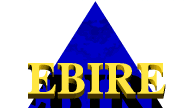
[objectives] [topics]
An
overlook on the various methods makes the observer conclude that at least
some of the limitations of each of the schemes could be overcome by integrating
them into a single approach. Such integration, however, has the prerequisite
that proponents of different approaches get together, present their methods,
theories, and data, discuss these openly, and attempt to find ways to
combine schemes, in order to achieve the ultimate goal of separating speech
signals by computational means. Given the sheer volume of current work
on the diverse methods, such a meeting of researchers is not only necessary
but also extremely timely. The proposed workshop, to our knowledge first
of its kind, intends to be an undertaking to reach this objective. Another
benefit of this workshop is that investigators of different fields, or
adepts of different approaches, may decide to explore possibilities of
attacking the problem jointly. While the development of such collaborative
ventures cannot be planned, the workshop may represent an opportunity
for instances of such collaboration to be born – collaboration between
computer scientists working in different directions on the problem as
well as collaboration between experimental psychologists/speech scientists
and computer scientists.
The primary impact of the workshop thus lies in its attempt to treat the
difficult and timely problem of speech separation in an interdisciplinary
fashion, recognizing that solution of the problem may need an approach
that consists of threads of knowledge, models, and proposals from different
scientific/technological fields and areas. Since the workshop is multidisciplinary
in nature, it necessarily will have an educational impact by exposing
participants to results, theories, and methods from fields that are not
their own. The workshop is also expected to serve as an opportunity for
the participants to develop professional ties possibly leading to collaborative
research plans.
The broad impact of the workshop lies in its attempt to build two communities.
The first community is that of scientists dedicated to working toward
solutions of speech separation within their own field, hoping that the
dialog commenced at the workshop will live on. Because the participants
are also engaged in teaching and training students, postdoctoral fellows,
and junior investigators, the workshop is also bound to have the impact
of passing on to the younger generation of scientists the importance of
appreciating the need for, as well as the difficulty of the problems of
speech separation. Building this second community will take time but the
workshop is expected to contribute to the effort.
The
workshop will address speech separation as viewed from different standpoints:
experimental psychology, neurophysiology, computational modeling of behavioral
and neurophysiological data, and diverse computational directions designed
to achieve automatic separation of speech sources. Accordingly, the specific
topics discussed will include
• behavioral experiments on the auditory scene analysis of multiple
speech sources;
• experiments on human central nervous system activity while performing
speech separation;
• theories and computational models of listeners’ performance
as regards diverse aspects of the “cocktail-party phenomenon”;
• bottom-up and top-down processes in speech separation;
• computational auditory scene analysis;
• learning and speech separation;
• the role of spatial separation of speech sources;
• statistics-driven and other blind-source separation techniques
applied to speech separation;
• separation of acoustic signals compared to the separation of graphic
objects.
Presentations grouped by topics will be followed by moderated discussion periods giving opportunity to all participants to engage in an exchange of views. A comprehensive discussion period at the end of the workshop will permit the participants to discuss the general current status as well future directions of the field of speech separation.
